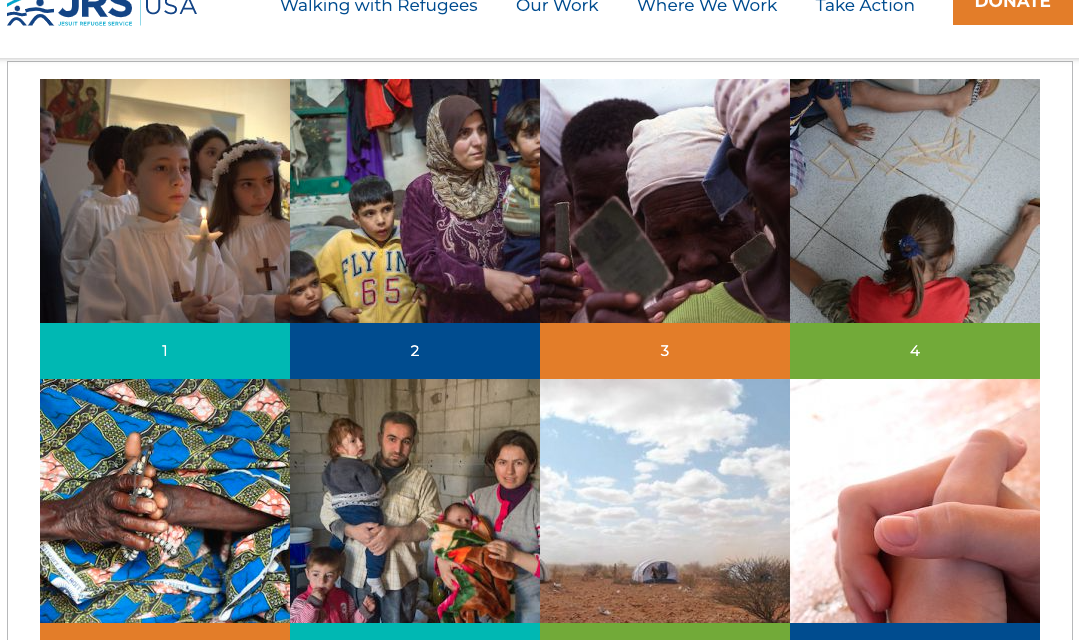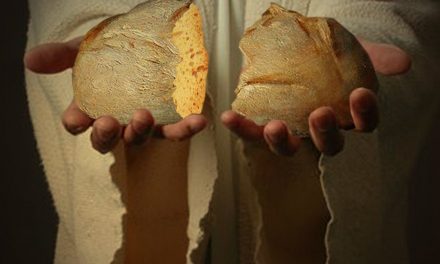First Sunday of Advent
November 29, 2020
- IS 63:16B-17, 19B; 64: 2-7
- PS 80: 2-3, 15-16, 18-19
- 1 COR 1: 3-9
- MK 13: 33-37
The gospel for this week is found in Mark 13, at the end of a speech Jesus gives to Peter, James, John, and Andrew (Mk 13:3) that some scholars call “the little apocalypse.” Jesus tells the disciples not to be weary or distracted from doing righteous deeds even though there are distressing events all around them. He predicts wars, earthquakes, famines, and family turmoil. “Woe to those who are pregnant and to those who are nursing infants in those days!” (Mk 13: 7-8, 17). Many scholars date this gospel around the year 70 CE, a time of turmoil in the Roman Empire; the audience would have been familiar with the emergent themes of repression, struggle, and resistance. The gospel was written in a situation of fear, for people who knew suffering and were seeking answers. Jesus tells his followers to “beware” and “keep alert,” drawing, as he often does, on metaphors from everyday life. This time it is “like a man going on a journey,” entrusting his home to the care of servants and a doorkeeper who must remain awake (Mk 13: 34-37).
In many ways, this gospel is about building resilience in difficult times. It is about reaching deep within to find the strength to keep going. Even after the family business closes. Even after you bury your friend, gone too soon. Even after the pregnancy loss that gutted you not just physically but emotionally. Mark’s community knew suffering. So do you, in your own way. How do you keep going?
Biblical studies scholar Benjamin A. Edsall writes that the challenge of this speech is the ambiguity of Mark’s eschatology; it is the mix of life and death all thrown in together.
“These passages indicate that the disciples can look forward to success in their ministry and persecutions, material and spiritual abundance amid self-divestment and in the face of opposing, fruitless leaders. The present age is a simultaneous experience of suffering and flourishing, persecution and triumph. Prayers are answered, relational and material needs are met, the gospel is preached throughout the world even while followers take up their cross… The disciples are to be awake—that is, continuing to work faithfully at their appointed tasks. Their ignorance of the timing of his return creates the atmosphere of constant imminence without immediacy, an almost spatial closeness in which eschatological hope stimulates the disciples to continued vigilance.”
Benjamin A. Edsall, “This Is Not The End: The Present Age and the Eschaton in Mark,” Catholic Biblical Quarterly (January 1, 2018): 429-447, at 447.
I don’t think that we should interpret Mark 13 as a call to hoard more toilet paper as covid cases rage again. Being vigilant now is more about spiritual wakefulness. It is a reminder to pay attention to the everyday realities of despair and desolation around us, even as we strive to persist and keep going. Mark’s gospel makes a lot of sense in 2020 because a lot of people know suffering at a deeper level this year than ever before. Susan A. Calef writes that Jesus’s speech in Mark 13 presents a “sobering realism about history,” which will continue to be marked by “chaos, tragedy, and destruction.” But the disciples were called to be people of hope in the midst of that chaos.
Hope is an enduring theme in the season of Advent. The advent wreath, which can be a beautiful and inexpensive family prayer practice during this season, is an opportunity to reflect on how we are preparing for the celebration of Christmas. The progressive lighting of the candles each week symbolizes our anticipation. As winter darkness shapes our experience of the season, the brightening wreath signals our growing sense of hope as the feast of Christmas nears. The season of Advent is a time in which we can reflect on how our hearts have been hardened (Is 63), and spend time in prayer reflecting on what it might mean for us to “stay awake,” to be attuned to the presence of God in our lives. For Thomas Aquinas, hope could be called a virtue because the object of hope is a future good, difficult but possible to obtain; and God is the object of our hope (II-IIae, Q 17). Being people of hope as 2020 comes to a close can mean persisting in everyday acts of generous, self-giving love, even while one does not ignore the painful realities of the world around you. It can mean seeking God in the midst of the drama of everyday life. And it means striving to make our world more just and more loving. As theologian Orlando Espin writes:
Hope pursues a different world that can exist but still does not. Hope leads to the acting and the living that make the ‘should be’ become. Hope is not a dream, but the affirmation that a different way of being can be constructed (by constructing it) in wide-awake reality.
–Orlando Espin, Idol and Grace, 94.
Additional Advent Resources:





